ghazi52
PDF THINK TANK: ANALYST

- Joined
- Mar 21, 2007
- Messages
- 102,921
- Reaction score
- 106
- Country
- Location
Pakistan is the sixth largest producer of dates in the world.
Thanks to suitable climate conditions, Khairpur in Sindh occupies central place in the country's date production.
Agriculture is central to Khairpur’s economy and date production plays a vital role in providing people with sustainable livelihoods.

The golden harvest of Khairpur.
Not only from adjacent localities, but people migrate to Khairpur with their families from Punjab and Balochistan as well and settle near the date farms. The internal migration begins as the harvest season approaches towards the end of May.

Date harvest forms the core of the region's economic activity.

Boiled raw dates are ready for sundry.
Only older women participate alongside men during the harvest as young women are discouraged from working at the farms.

Due to cultural constraints, young women are kept away from the farms.
The tasks are gendered: women pick fruit from the bunches once they’ve been taken down from the trees by men.
Among men, there is also division of labour and difference of compensation. The wages are extremely low, especially compared to how lucrative date farming is. Those who carry the dates on their shoulders and backs earn around Rs350 per day only.

Once taken down from the trees, dates are transported to the processing site.

Dates are boiled in water mixed with yellow colour for about 20 minutes before being taken out to dry.
Those who work in the kitchen to make choaras (dry dates) are paid around Rs500. Those who climb trees to pluck the fruit are paid the highest — around Rs700 rupees — as their work is the most difficult and risky. Women earn the least at around Rs250 per day.
As there’s lack of basic technology, all the tasks are done manually, adding to the workers’ difficulty.
Temperatures often reach around 48 degree Celsius and workers work barefeet.
Those who work in the kitchen risk fire burns but there is no medical facility in the area in case there is an accident.

Climbing trees is potentially fatal.

The date variety predominantly found in Khairpur is called Aseel. Most of these dates are dried and turned into choaras.
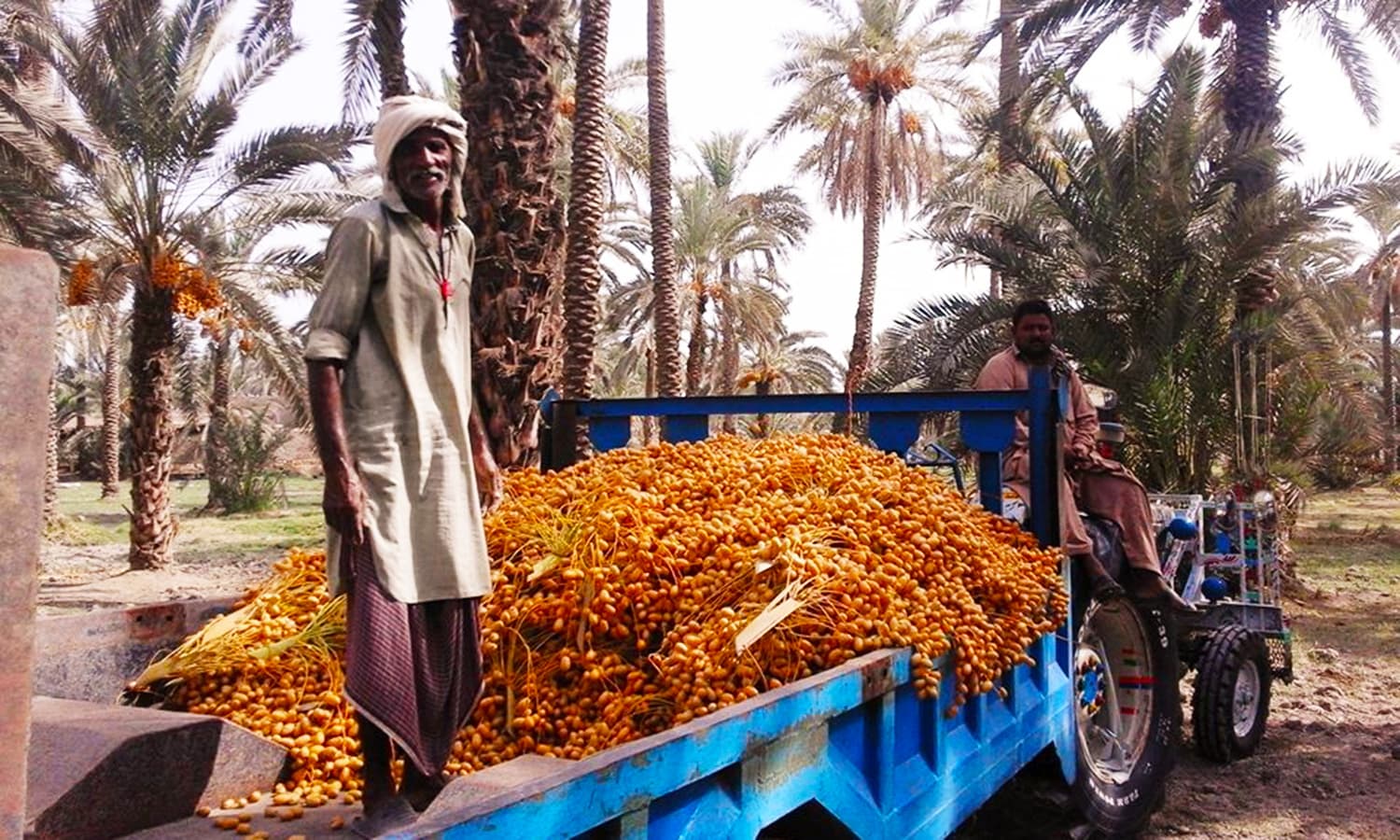
Tractors are the only modern equipment at these farms.

A young man separates dokas (raw dates). Each bunch weighs around 15-17 kg.
Thanks to suitable climate conditions, Khairpur in Sindh occupies central place in the country's date production.
Agriculture is central to Khairpur’s economy and date production plays a vital role in providing people with sustainable livelihoods.

The golden harvest of Khairpur.
Not only from adjacent localities, but people migrate to Khairpur with their families from Punjab and Balochistan as well and settle near the date farms. The internal migration begins as the harvest season approaches towards the end of May.

Date harvest forms the core of the region's economic activity.

Boiled raw dates are ready for sundry.
Only older women participate alongside men during the harvest as young women are discouraged from working at the farms.

Due to cultural constraints, young women are kept away from the farms.
The tasks are gendered: women pick fruit from the bunches once they’ve been taken down from the trees by men.
Among men, there is also division of labour and difference of compensation. The wages are extremely low, especially compared to how lucrative date farming is. Those who carry the dates on their shoulders and backs earn around Rs350 per day only.

Once taken down from the trees, dates are transported to the processing site.

Dates are boiled in water mixed with yellow colour for about 20 minutes before being taken out to dry.
Those who work in the kitchen to make choaras (dry dates) are paid around Rs500. Those who climb trees to pluck the fruit are paid the highest — around Rs700 rupees — as their work is the most difficult and risky. Women earn the least at around Rs250 per day.
As there’s lack of basic technology, all the tasks are done manually, adding to the workers’ difficulty.
Temperatures often reach around 48 degree Celsius and workers work barefeet.
Those who work in the kitchen risk fire burns but there is no medical facility in the area in case there is an accident.

Climbing trees is potentially fatal.

The date variety predominantly found in Khairpur is called Aseel. Most of these dates are dried and turned into choaras.

Tractors are the only modern equipment at these farms.

A young man separates dokas (raw dates). Each bunch weighs around 15-17 kg.


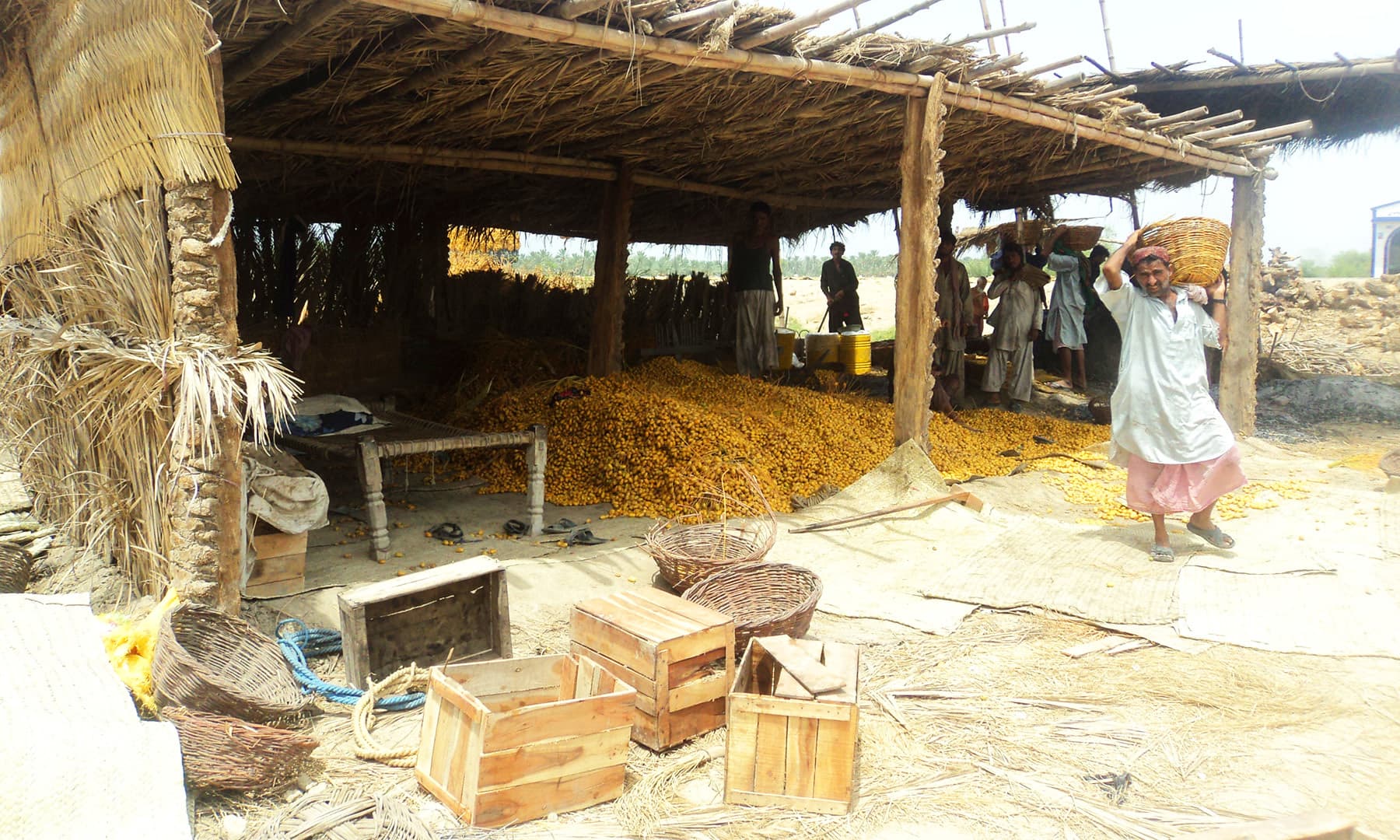
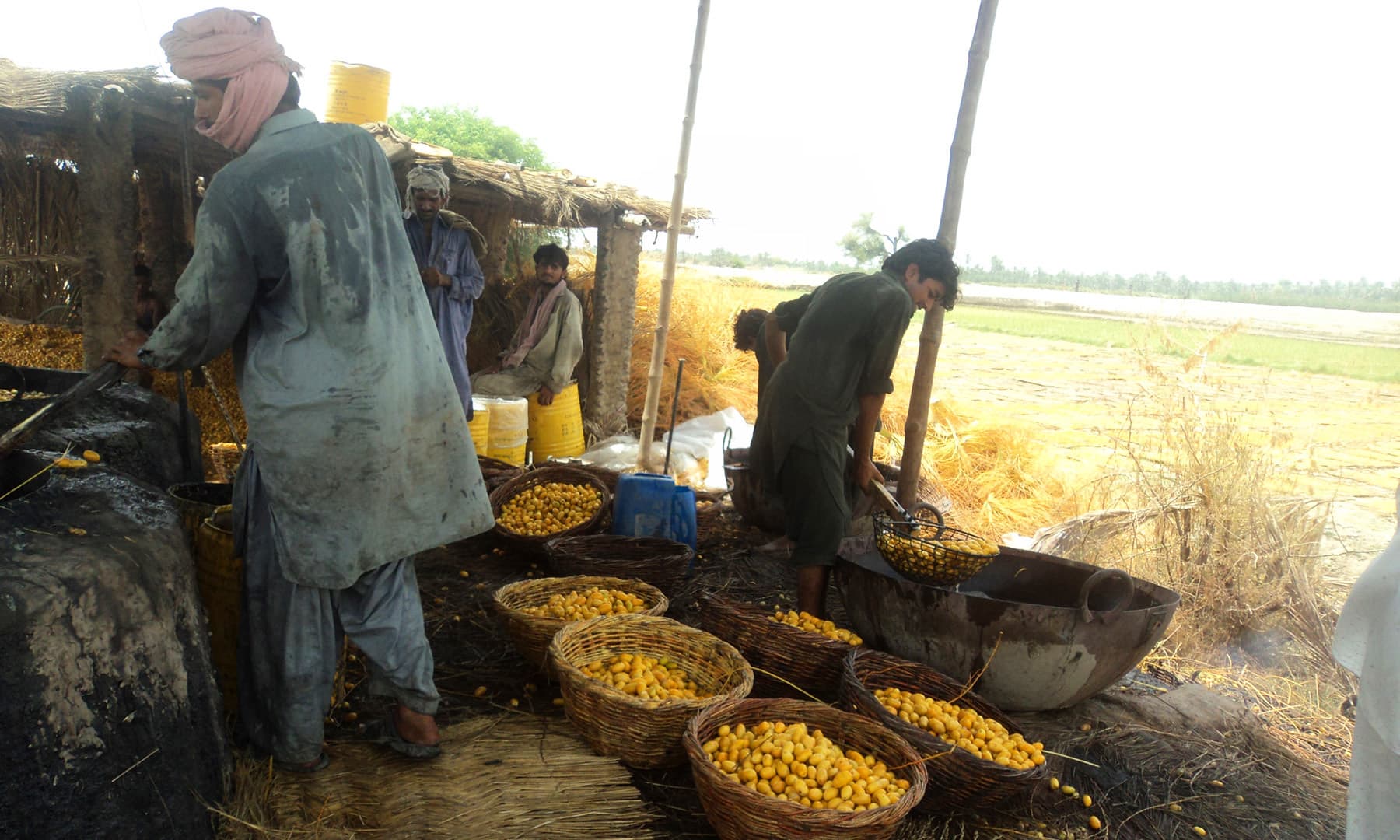

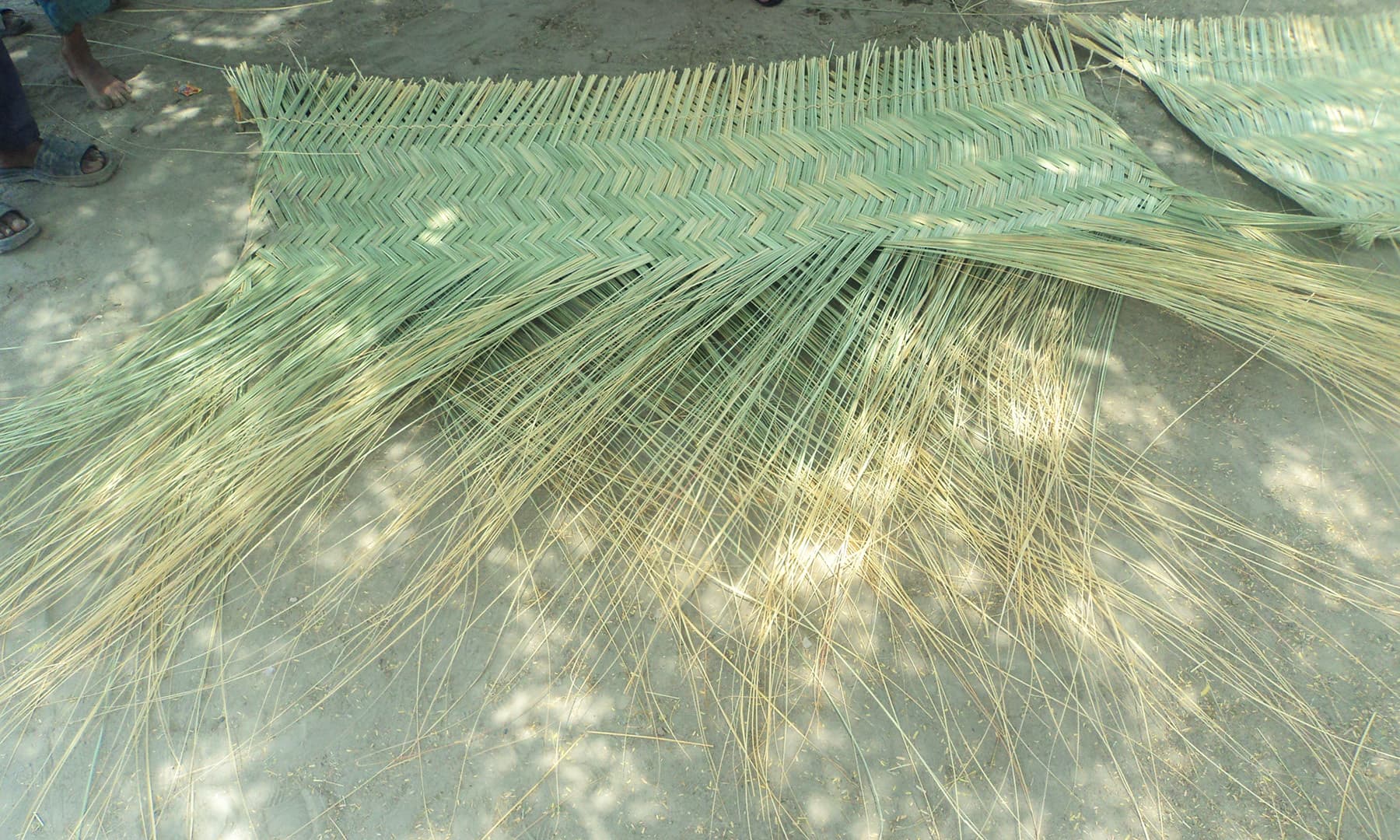
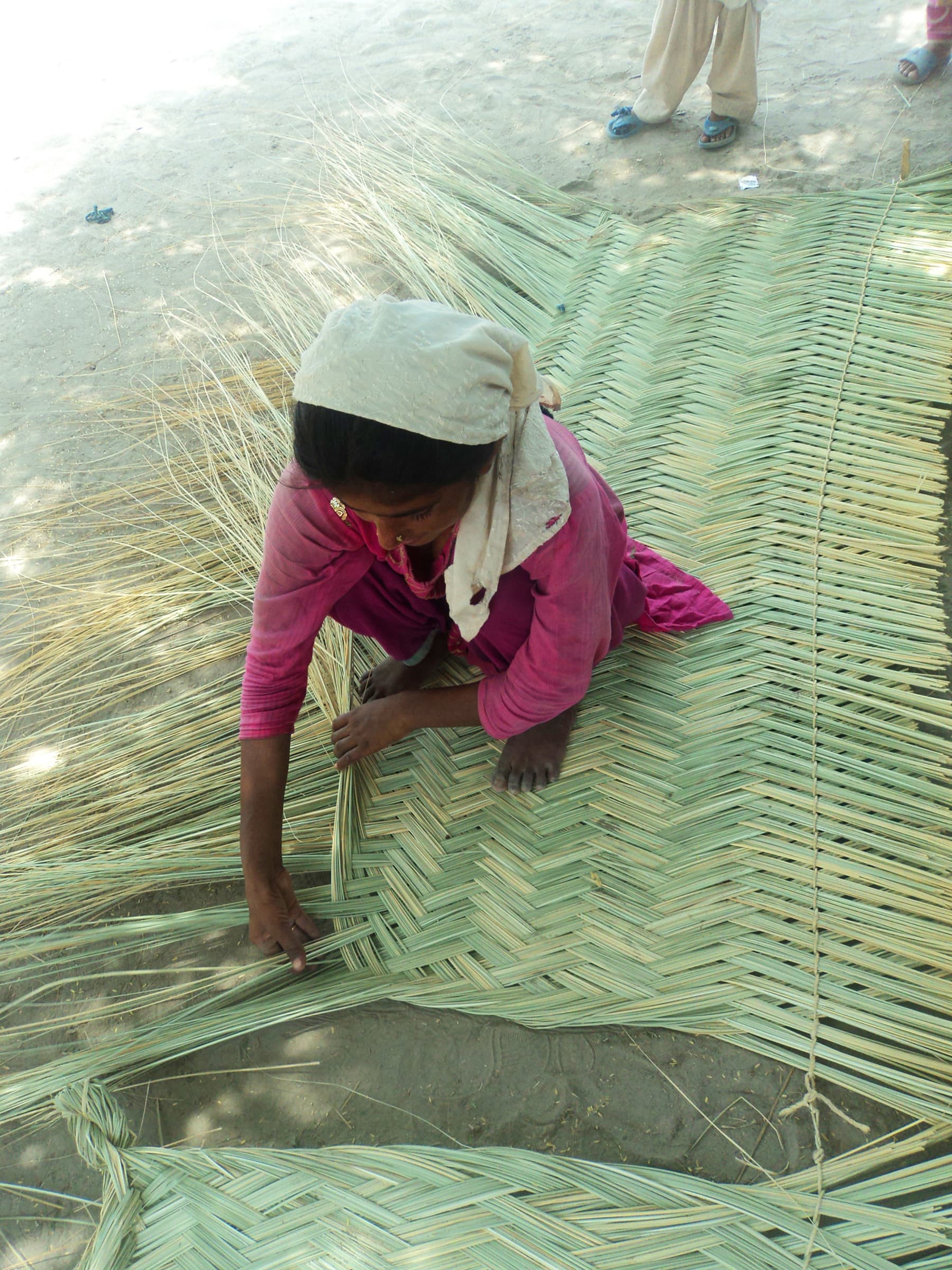


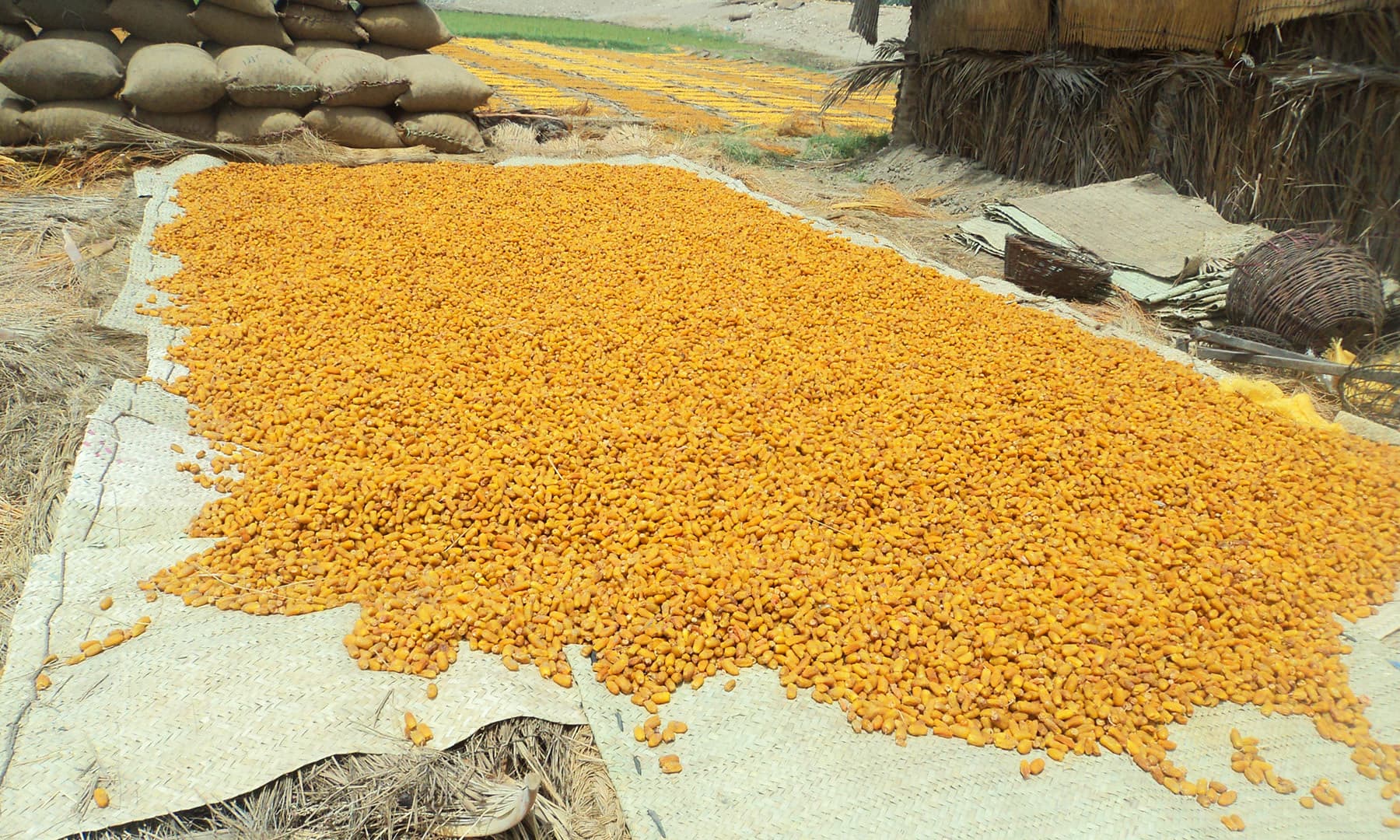










 dates more then anything else in summer.
dates more then anything else in summer.


